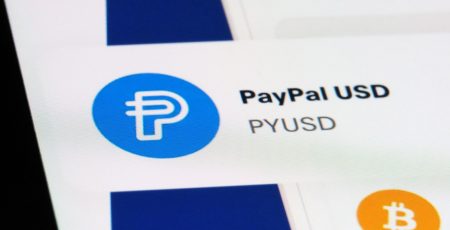Money is powerful when it is used, but not when it is just sitting around. Every day, billions of transactions occur worldwide, and payments are the most regular and tangible use of money. But again, payments are more than just a means of exchanging goods or services.
Typically, our financial transactions are manifestations of our financial independence. Bust still, being unable to pay how we want restricts our ability to create, distribute, and utilize value in the best ways possible.
Simultaneously, PayPal became a significant role in the payment ecosystem, hence a disruptor. More than ten years after the advent of blockchain technology, PayPal is again rising by experimenting with on-chain payments, even though they were the first to introduce payments online.
The Digital Payment Revolution
The internet brought a big change to how we handle payments. As more activities moved online, people expected fast and global payment options. However, a reliable and efficient online payment system still needed to be included. People wanted a secure, quick, and user-friendly platform. Businesses needed something dependable for their growing online customer base.
PayPal emerged as a go-to solution for a reliable and efficient online payment system, evolving its services to meet the ever-changing user demands. With a user base of over 400 million active accounts, PayPal’s success is a testament to its adaptability and commitment to seamless payment processes. From facilitating early eBay transactions to the acquisition of Venmo in 2013, PayPal has consistently adapted to answer one question: How do people want to pay?
Meeting the demand for fast, affordable, and global payments is no walk in the park. Over the past three decades, finding the right solution to these expectations has been a complex challenge, further highlighting PayPal’s resilience.
PayPal, Cryptocurrency, and Emerging Financial Channels
The promise of quick and seamless transactions often needs to be improved in digital payments. Current innovations rely on the same financial structures from the internet’s early days, offering “instant” settlements that involve accepting or diverting risks.
Online payments take too long to settle in the US, and traditional business mechanisms further slow things down. This creates challenges for employers paying remote workers and a global population seeking fast, affordable cross-border transactions, with businesses and consumers experiencing unnecessary delays.
So, why consider crypto? It’s practical. Cryptocurrency brings us closer to what people want: quick, cheap, global payments. Blockchain, the new financial and payment system, transforms how payments happen, making them nearly instant for customers and businesses 24/7.
This shift is coming in handy. Blockchain isn’t just a trend; it’s a rational choice for PayPal. If there’s a way to offer round-the-clock, almost immediate, cost-effective transactions, exploring it makes sense. For PayPal, blockchain technology provides the potential to reduce transaction costs, increase speed, and improve security, making it a logical choice for enhancing their payment system. With 400 million active accounts, PayPal sees an opportunity to bridge the gap between this new payment system and global adoption.
PayPal, Payments and PYUSD
In 2020, PayPal and Venmo introduced the capability for users to buy, hold, and sell crypto directly within their accounts through last year to transfer crypto assets between these accounts and external wallets, let alone decentralized ones.
Basically, PayPal and Venmo are envisioned as crucial hubs for commerce to facilitate seamless business and individual transactions.
With a neutral stance on blockchain and crypto, they focus on meeting customer demands for easier, faster, and more affordable payments and recognizing the potential of stablecoins, specifically supporting Paxos’ PYUSD. Upholding their commitment for over three decades, they strive to give customers what they want.
PYUSD, the acronym for PayPal USD, stands as a USD-pegged stablecoin introduced by the renowned global payment services provider, PayPal. Tailored for digital transactions and Web3 environments, PYUSD aims to maintain a consistent value relative to the US dollar, setting it apart from other stablecoins like USDT and USDC by operating under regulatory scrutiny from the New York Department of Financial Services (NYDFS).
Pay How You Want
PayPal is a deep-seated belief in the essence of money lying in its ability to move swiftly, affordably, and globally – a quality customers consistently seek. The narrative of PayPal unfolds as a tale of steadfast commitment: empowering individuals and businesses to engage in transactions on their terms.
All in all, PayPal has introduced a new paradigm that aligns with the intention to facilitate seamless payments worldwide, and as such, paying with crypto translates to paying exactly how you want.
Disclaimer: This article is provided for informational purposes only. It is not offered or intended to be used as legal, tax, investment, financial, or other advice.









